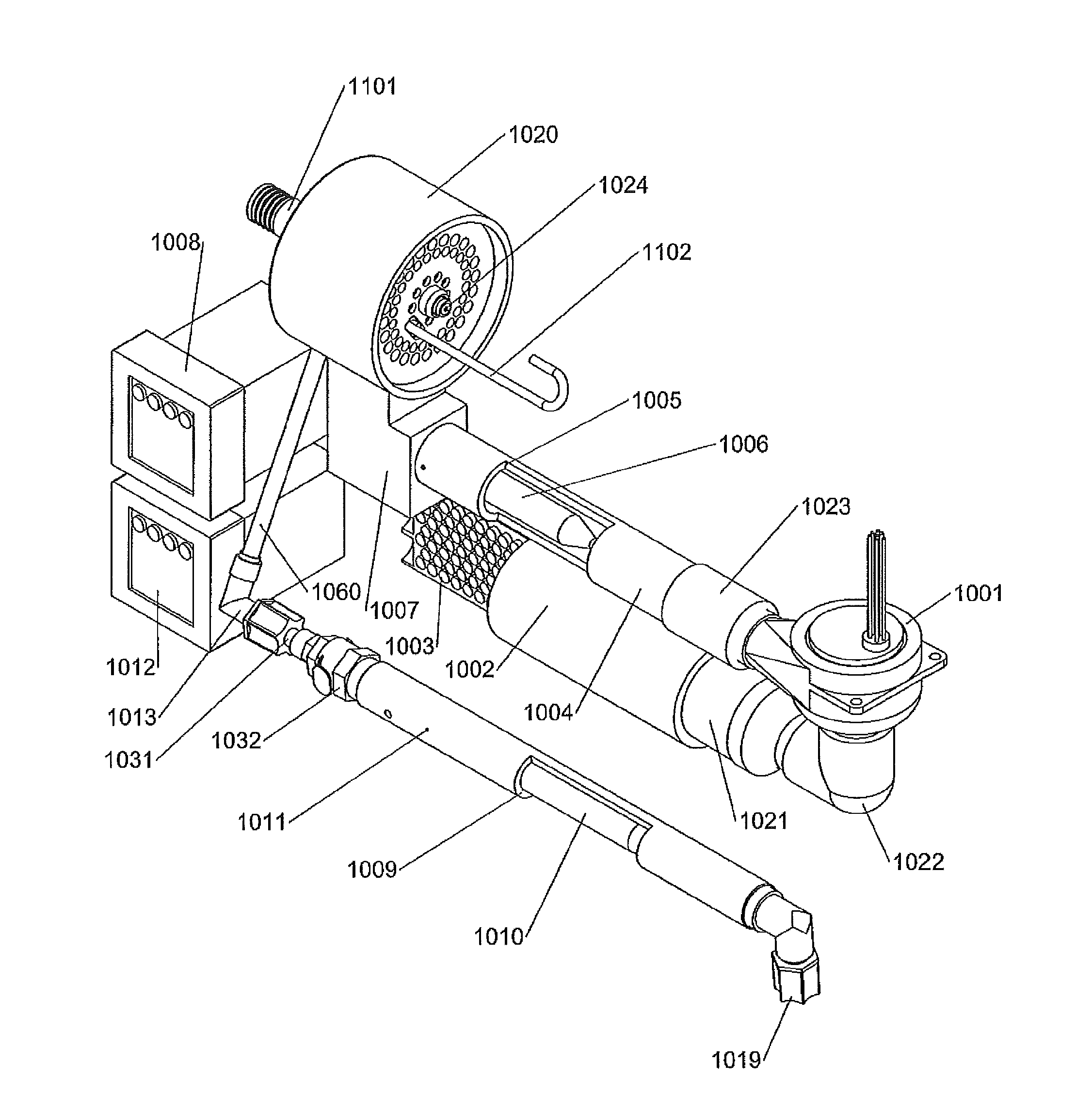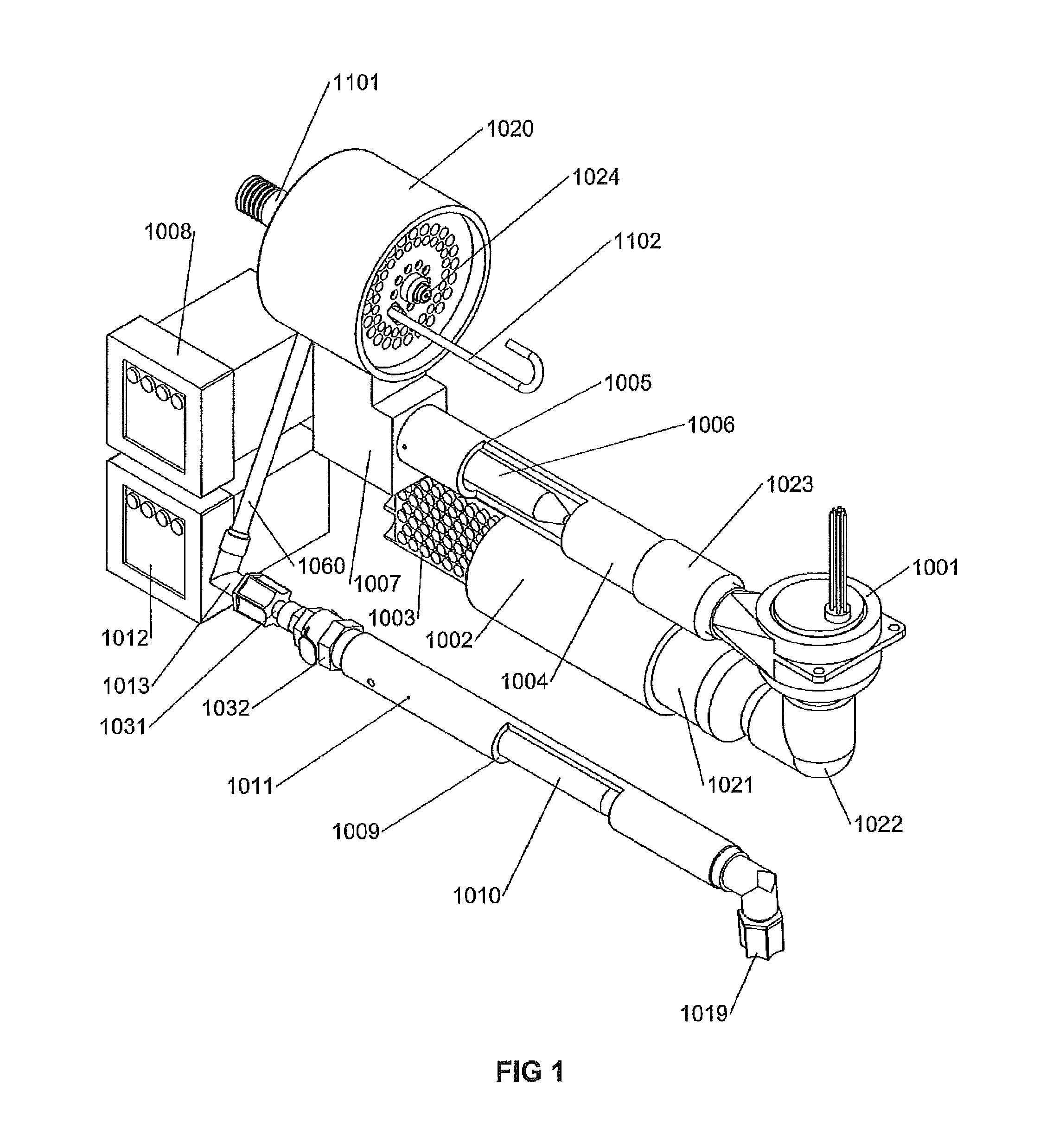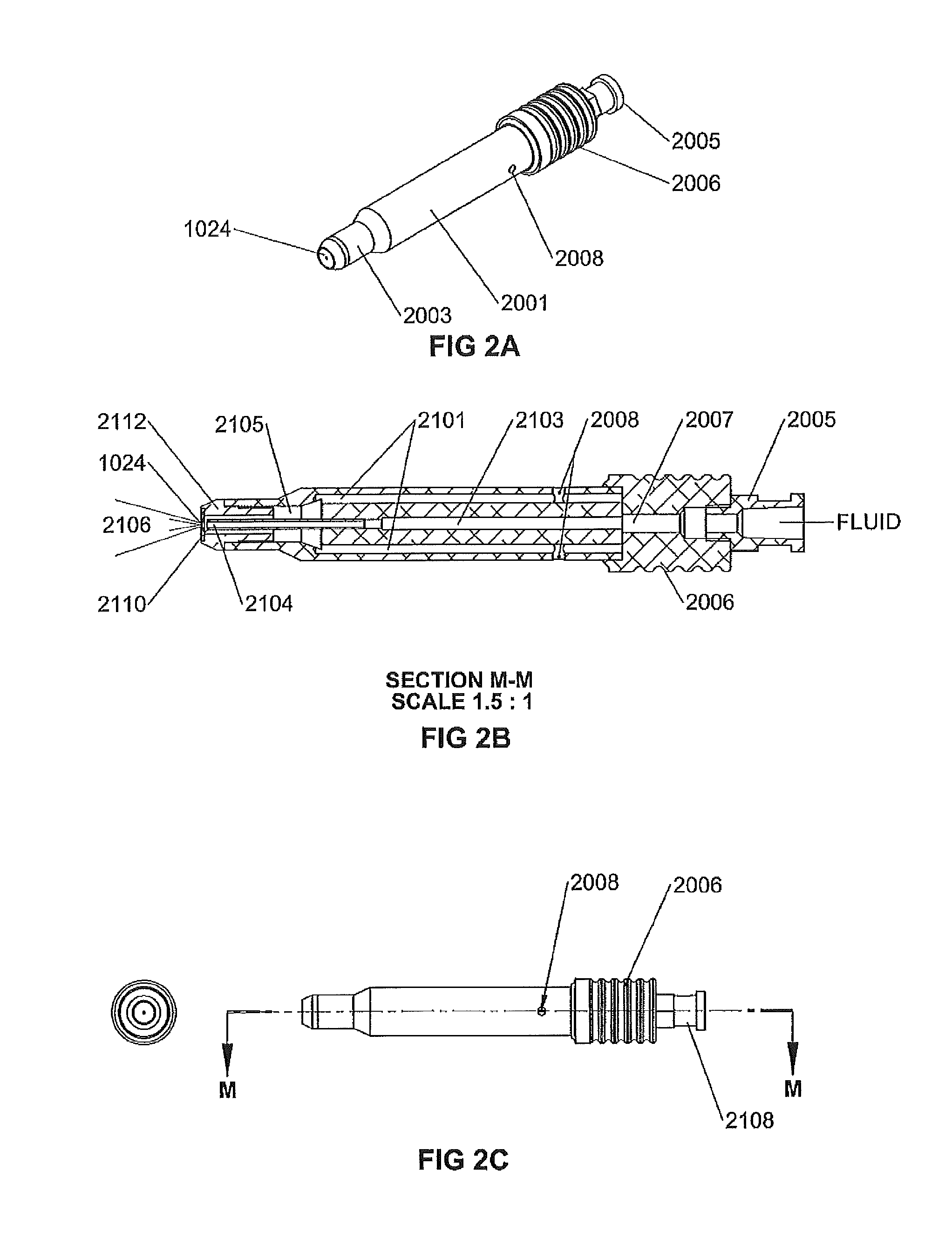Method of aerosolizing a liquid
a liquid aerosol and liquid technology, applied in the field of portable devices, can solve the problems of degrading the molecules, affecting the aerosolization effect, and the device which generates the liquid aerosol may not work well with the molecules of high molecular weight or at high concentration, so as to achieve the effect of reducing the leakage of gas
- Summary
- Abstract
- Description
- Claims
- Application Information
AI Technical Summary
Benefits of technology
Problems solved by technology
Method used
Image
Examples
examples
[0123]The flow resistance of the dilution heater was found to be 0.12, 0.3 and 0.5 inches of water at 100, 150 and 200 liters per minute, respectively. The flow resistance of the flow conditioner was determined to be 1 inch of water at 150 liters per minute and 1.8 inches of water at 200 liters per minutes. The flow resistance of the aerosol concentrator was determined to be less than 1 mm of water at all tested input flow rates below 300 liters / minute when the concentrator output flow rate was 40 liters per minute. The pressure inside the evaporation chamber was 0.3, 0.8, 1.4, 2.2 and 2.7 inches of water at chamber flow rates of 100, 150, 200, 250 and 300 liters / minute, respectively when the output flow rate of the concentrator was 40 liters / min.
[0124]A solution of 16% bovine serum albumin was fed to the nozzle using an infusion pump and aerosolized at 1 ml / minute. The nozzle pressure was 20 to 24 psi and the dilution gas flow 200 liters / minute. The resultant dry aerosol downstream...
PUM
| Property | Measurement | Unit |
|---|---|---|
| annular gap width | aaaaa | aaaaa |
| annular gap width | aaaaa | aaaaa |
| angle | aaaaa | aaaaa |
Abstract
Description
Claims
Application Information
 Login to View More
Login to View More - R&D
- Intellectual Property
- Life Sciences
- Materials
- Tech Scout
- Unparalleled Data Quality
- Higher Quality Content
- 60% Fewer Hallucinations
Browse by: Latest US Patents, China's latest patents, Technical Efficacy Thesaurus, Application Domain, Technology Topic, Popular Technical Reports.
© 2025 PatSnap. All rights reserved.Legal|Privacy policy|Modern Slavery Act Transparency Statement|Sitemap|About US| Contact US: help@patsnap.com



